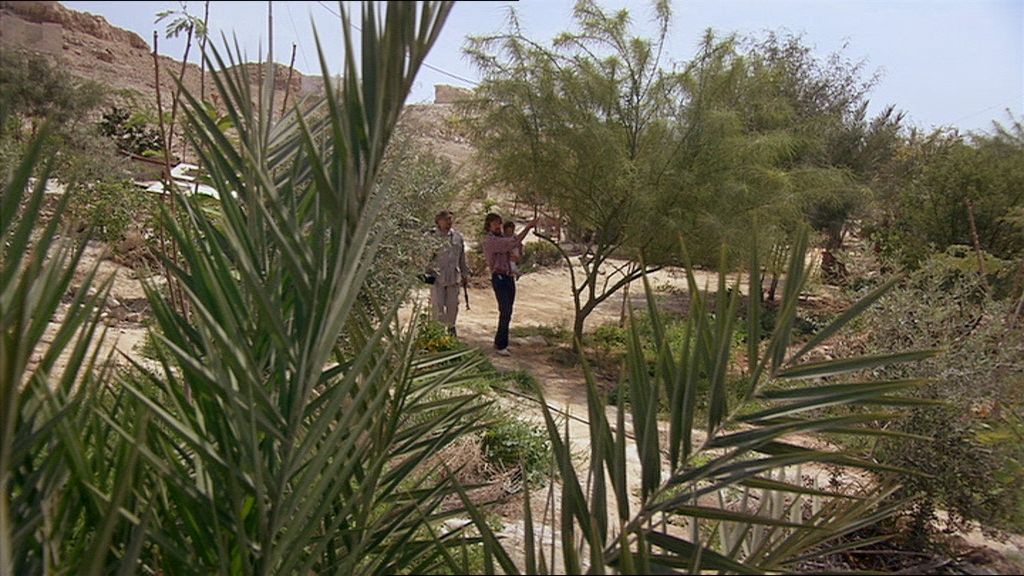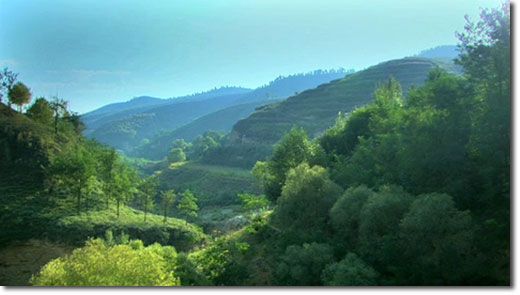This is going to be a short post this week because A) all weekend we have had a talkoot where I am interning and B) the content I am linking to is quite extensive. Talkoot does not exactly translate from Finnish, but it is basically when a community comes together to accomplish a task (usually laborious, much like a barn raising). We have been preparing the greenhouse and urban farm for winter and next years plans, so I have not had much time to write.
But, as you will see, perhaps my own writing this week will be rather unnecessary.
The quote from the title comes from the United Nations Conference on Trade and Development's Trade and Environmental Review 2013. This is the report that I had written as "under embargo" and did not have a link to for the last couple of weeks.1
Here is a quote from the Highlight tab regarding TER13:2
TER13, entitled Wake up Before it is Too Late: Make Agriculture Truly Sustainable Now for Food Security in a Changing Climate was released on 18 September 2013. More than 60 international experts have contributed their views to a comprehensive analysis of the challenges and the most suitable strategic approaches for dealing holistically with the inter-related problems of hunger and poverty, rural livelihoods, social and gender inequity, poor health and nutrition, and climate change and environmental sustainability - one of the most interesting and challenging subjects of present development discourse. [emphasis added]
Remember last week when I said that agroecology is the one field that is offering hope to combat and eliminate many of the ills we as humanity have been facing for a very long time now?
Well, here is a 300+ page report written by over 60 experts who are saying almost exactly that: if we adopt new methods of relating to the planet, we will see tremendous progress.
1. Those links have been fixed for a couple of days now. "Embargo" in UN speak means that it should not be quoted from in any media until the specified date.
2. UNCTAD TER 2013. Link. Click on "Full Report" to either view in your browser or you can "save as" to your hard drive.
Last Time Here...
 Geoff Lawton giving a guided tour of the nascent food forest in Jordan at a Permaculture Research Institute. Photo Credit: VPRO Tegenlicht. I originally shared this image in the diary about Green Gold (the source of the image).
Geoff Lawton giving a guided tour of the nascent food forest in Jordan at a Permaculture Research Institute. Photo Credit: VPRO Tegenlicht. I originally shared this image in the diary about Green Gold (the source of the image).
Last week
I shared an earlier UN report regarding agroecology's ability to outperform chemical fertilizers in food production. I made a short list of the areas in which the adoption of these techniques can and
are making a difference around the globe (along with their potential). Instead of backing up each and every one of these claims- that would require a doctoral thesis- I expanded on the report's emphasis that these techniques, this knowledge, is not going to be advanced by corporate interests. There is no product to be sold, only knowledge and decision making frameworks to be shared.
It is up to us to pressure our governments to promote research and development in this field. It is also up to us as individuals to support farmers making this transition.
I also did not provide linked citations to back each and every one of these claims because I knew that the TER13 report would be released to the public any day.
I would rather rely upon dozens of international experts to make the case for me. And that is what I bring to you all today.
"Fast deteriorating ecosystems, climate change and water scarcity seriously threaten food security. These challenges can best be met through adoption of agroecology, organic and other sustainable farming methods." -John Feyder's Commentary I's Abstract3
 Loess Plateau, early September 2009. 14 Years after restoration began. See my diary on the documentary, linked above, for the "before" image. Photo Credit: Kosima Weber Liu, EEMP
Loess Plateau, early September 2009. 14 Years after restoration began. See my diary on the documentary, linked above, for the "before" image. Photo Credit: Kosima Weber Liu, EEMP
If you are from the small crowd that has been challenging me to provide even more evidence for my claims, I hope that you will at least read a few of the articles within TER13.
The report is divided into five chapters; each with a lead article and a number of commentaries.
Here is the list of chapters with the number of commentaries in parenthesis:
Chapter 1. Key Development Challenges of a Fundamental Transformation of Agriculture (19)
Chapter 2. Livestock Production: A Climate Change and Food Security Hot Spot (3)
Chapter 3. The Role of Research and Technology and Extension Services (6)
Chapter 4. The Role of Changes in Land Use (2)
Chapter 5. The Importance of International Trade and Trade Rules for Transforming Global Agriculture (9)
In addition, there are 10 pages of references.
So go on, take a look. Freely available. If you are still in doubt that humans can fundamnetally change the way we interact with the planet and truly combat climate change, poverty, food insecurity, gender inequality, biodiversity loss, and ecosystem malfunction... this report is for you.
Even if you are not in doubt, it serves as a wonderful tool to support your arguments why.
As always in this series, there is another important topic to cover: that of the importance of livestock (of all kinds) in agroecology and why the current dogma that declares livestock to always be a detriment to their local environment and the climate at large is absolutely false.
Throughout the report, industrial agriculture and its factory farming of livestock (including of course the vast amount of land put aside for feed) is rightly condemned.
However, the integration of livestock into agroecosystems is repeatedly upheld as an essential means of closing nutrient cycles and providing additional sources of nutrition and income for small farms. Not are only livestock integral parts of these systems, but many of the commentaries speak to the ability of pastures to sequester huge amounts of carbon while providing other ecological services at the same time.
I urge everyone to take the time to at least browse the 300+ page report for topics of interest to them. This is an immensely important document.
Continuing to ignore the ability of agroecology to manifestly change this world for the better is an untenable position.
Unless I receive a negative response from UNCTAD TER, I will be using this report in the coming weeks as the basis for many of my upcoming diaries. I want to focus in on articles that I particularly found interesting and hope to keep this paradigm shifting document in the spotlight.
Thanks for reading and enjoy what remains of your weekend!
3. John Feyder, "Commentary I: Agriculture: A Unique Sector in Economic, Ecological and Social terms," TER13, p. 9.
Additional Resources
Weekly Agroecology Diaries
Sept. 14 2013. Introduction to Agroecology: Is it Anthropogenic or Bovigenic Climate Change?
Sept. 21 2013. Agroecology: "Rehabilitation of degraded land has the potential to double [...] agricultural land"
Sept. 29 2013. Agroecology: "...Outperform[s] the use of chemical fertilizers in boosting food production..."
Oct. 6 2013. Agroecology: "Wake up before it is too late"- UNCTAD's TER13 Report.
Book Reviews
Reviewing (in my own way) George Monbiot's "Feral." Link.
Large Scale Damaged Ecosystem Regeneration [Diary]:
Excellent, must see documentary: John Liu's Green Gold- extended version of "Hope in a Changing Climate" that was presented at the recent Rio summit.
Another good article by John D. Liu. Finding Sustainability in Ecosystem Restoration.
Holistic Management [Diaries: First, Second, Third, Fourth]:
The Savory Institute.
The Africa Centre For Holistic Management.
Holistic Management International.
Seth Itzkan has put together a very good reference list for Holistic Management, here.
Permaculture:
The Permaculture Research Institute is excellent (Updated: formerly PRI Australia). With almost daily updates from the world of permaculture (an ethical design system that utilizes agroecology [diary]), this site is on my "must check list" daily. Good news to be found here.
There are some excellent video presentations from 2011's International Permaculture Convergence held in Jordan, which followed a permaculture design course taught at the world-renowned "Greening the Desert Part II" site in the Dead Sea Valley. Here is a link to the documentary about the site, and here is a photo update from Spring 2013.If you scroll to the bottom of this webpage, you will find links to video presentations given at the convergence.
Ecological Gardening
Here is a list of diaries I wrote that covered some of the very basics.
I. Basic Garden Ecology
II. Soil
III. Layers
IV. Polycultures
Plant Databases
Plants for a Future. Absolutely massive database for useful plants.
Documentaries:
The first diary of this series revolves around three documentaries.
The first is a TED talk by Willie Smits about rainforest restoration to provide habitat for orangutans and a standard of living for the local people using agroecological methods. Not only was the project highly successful, but climate moderation was demonstrated via satellite imagery.
The second, The Rebel Farmer, is about Sepp Holzer, a very famous Austrian who practices his own version of permaculture. He has also written numerous books in addition to being in demand across the globe.
The third presents "Greening the Desert"- which covers both sites in Jordan where Geoff Lawton and the Permaculture Research Institute have been applying permaculture with great success.
YouTube Channels:
In no particular order:
John D. Liu: pioneering large scale damaged ecosystem restoration.
What If We Change: John D. Liu's project to inspire others to share their efforts to combat climate change and other problems.
Whole Systems Design: operating from Vermont, Ben Falk's permaculture design firm. Excellent site overview and talks on agroecology. Also a must see video from Hurricane Irene.
Permaculture News: PRI's YouTube branch
Permasolutions: Offering permaculture inspired solutions to problems
Toby Hemenway: Author of Gaia's Garden and permaculture designer. Great talk on horticultural society.
Al Baydha: Pilot project in Saudi Arabia to regenerate "bare bones" landscape for Bedouins.
Eric Toensmeier: Author of Perennial Vegetables, coauthor of Edible Forest Gardens, and plant guru. Has an upcoming book on perennial agricultural solutions to climate change.
Paul Stamets: World famous visionary mycologist who will change the way you see the world. You'll never forget fungi after his speeches regarding their potential use and place in the ecosystems.
Books:
My favorite books:
Edible Forest Gardens, Vol I and II. David Jacke with Eric Toensmeier. Chelsea Green, 2006.
Sepp Holzer's Permaculture. Sepp Holzer, translated by Anna Sapsford-Francis. Chelsea Green, 2010.
Gaia's Garden. Toby Hemenway. Chelsea Green, 2009 (2nd edition).
Let the Water Do the Work. Bill Zeedyk and Van Clother. The Quivira Coalition, 2009.
The One Straw Revolution. Masanobu Fukuoka. Link will point you to a decent review.
Akinori Kimura's Miracle Apples. By Takuji Ishikawa, translated by Yoko Ono. This is an absolutely fantastic story. My favorite part is towards the end, chapter 22, when Kimura is told of his family's first success. Give it a read!
Feral: Searching for enchantment on the frontiers of rewilding. George Monbiot. Allen Lane, 2013.
The Resilient Farm and Homestead: An Innovative Permaculture and Whole Systems Design Approach. Ben Falk. Chelsea Green, 2013.
For a much fuller list of books on the subject, see Toby Hemenway's Permaculture Reading List.
Other:
The Land Institute. Their goal is to develop highly productive perennial staple crops which will produce a living system as stable as natural prairies. This is the kind of pioneering research we should be funding. H/T to sfinx for bringing them up.


